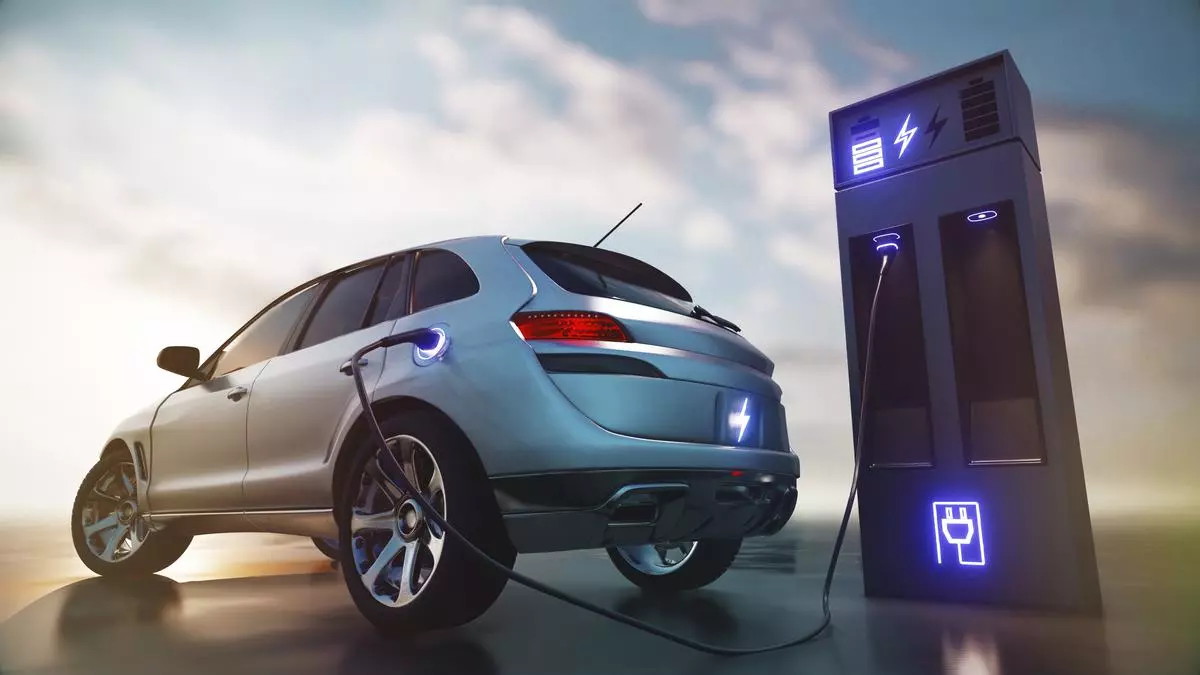Global Electric Vehicle Market Set to Soar as Sales Predicted to Reach 17 Million by 2024
The shift to electric vehicles is accelerating globally, with sales surging to new heights. Is 2024 poised to mark the tipping point for the automotive industry's electric revolution?
Published April 24, 2024 - 21:04pm

Image recovered from thehindubusinessline.com
Global sales of electric cars have surged dramatically, reaching close to 14 million in 2023, and are projected to climb to approximately 17 million in 2024, a landmark that signifies that more than one in five cars sold worldwide could be electric, according to several reports from the International Energy Agency (IEA). This growth trajectory suggests that electric vehicles (EVs) are swiftly transcending from a market dominated by early adopters to one appealing to the mass market with significant implications for the automotive industry and energy sectors alike.
In 2023, Chinese carmakers led the charge, producing over half of all electric vehicles sold globally; a striking contrast against their 10% share of global internal combustion engine vehicle sales. With almost 2.5 lakh EVs sold every week last year, the demand for electric cars is not just a developed world phenomenon but is also picking up pace in emerging economies such as Vietnam and Thailand, alongside policy initiatives promoting EV manufacturing and adoption in countries including India, Brazil, Indonesia, Malaysia, and Mexico.
Action plans like the Production Linked Incentives (PLI) Scheme in India and access to subsidies from the US Inflation Reduction Act are accelerating this transition. In Europe, the trajectory towards mass EV adoption is nuanced, with the phase-out of subsidies in some areas tempering growth. Electric cars in this region and the United States typically command a higher price point compared to Internal Combustion Engine vehicles, unlike in China, where the majority of electric cars sold were cheaper than their traditional counterparts.
However, the first quarter of 2024 observed around a 25% increase in electric car sales compared with the first quarter of 2023, maintaining the momentum seen in the previous year. The market share for electric cars in 2024 could soar to as much as 45% in China, 25% in Europe, and over 11% in the United States. This robust growth is fueled by competitive manufacturing, declining battery costs, and enhanced policy support, suggesting the market is adapting to accommodate the EV wave. Despite challenges such as tight margins, volatile battery metal prices, high inflation, and the phasing out of purchase incentives, the industry's growth trajectory seems unwavering.
Looking forward, the acceleration in EV adoption could signify a peak in oil demand for road transport around 2025, with ramifications rippling through the energy markets. With the IEA estimating a potential reduction in oil demand by about six million barrels per day by 2030—over a tenth of the total current demand—the shift towards electric mobility is projected to have a transformative impact on global economies and the environment. As the market evolves, providing sufficient charging infrastructure and managing ballooning manufacturing scales represent significant challenges that need to be addressed to meet the growing demand and maintain the health of the EV ecosystem.
The unprecedented surge in electric vehicle (EV) sales is part of a broader trend towards sustainable transportation, spurred by rising environmental concerns and technological advancements. Governments around the world are introducing stringent regulatory frameworks to combat climate change, which includes setting ambitious targets for EV adoption and carbon emissions reductions. Norway, renowned for having the world's highest EV market penetration, aims to sell only zero-emission cars by 2025. Similarly, the UK has set a 2030 deadline for halting sales of new petrol and diesel cars.
Auto industry giants are recalibrating their strategies to pivot away from fossil fuels. Legacy automakers such as General Motors and Ford are investing billions into electrifying their fleets, aiming to challenge the dominance of electric car pioneer Tesla, which delivered a record 1.3 million vehicles in 2023. European manufacturers like Volkswagen and Renault are also stepping up, with VW planning to roll out 70 new electric models by 2030. This competitive landscape is fostering innovation, increasing efficiency, and pushing down prices, making EVs more accessible.
Moreover, technological advancements, particularly in battery technology, are poised to further enhance the EV value proposition. Solid-state batteries, expected to enter the market by the latter half of the decade, promise not only to lower costs and weight but also to offer greater energy density, reduced charging times, and improved safety. Automotive industry experts anticipate these developments to be game-changers, potentially unlocking new segments of the market and spurring even greater consumer acceptance.
The rise in EV adoption is expected to disrupt the oil markets but could stimulate growth in other sectors, such as the electrical industry. Increased EV use will drive up demand for electricity, thereby escalating the need for renewable energy sources to sustainably power the expanding fleet. This presents opportunities for the advancement and integration of renewable energy solutions, smart grid technologies, and innovations such as vehicle-to-grid systems that could transform electric cars into mobile energy storage assets.
Nevertheless, the transition to electric mobility is not without its challenges. The procurement of raw materials such as lithium, cobalt, and nickel, essential for EV batteries, has raised concerns about supply bottlenecks and the ethical implications of mining practices. Automakers and governments are working on solutions. These include developing more efficient recycling systems to recover battery materials, investing in new mining projects that adhere to environmental and social standards, and researching alternative battery chemistries that rely on more abundant and sustainable materials.
Educational initiatives and public awareness campaigns are also underway to ensure potential EV buyers are well informed about the benefits and realities of EV ownership. Efforts include myth dispelling around range anxiety and showcasing the total cost of ownership benefits, which often favor EVs when considering fuel savings and lower maintenance costs over the vehicle's life. With the EV market's swift expansion and the determination of stakeholders across various sectors, electric vehicles are etching an indelible path towards a greener future. The continued research and policy engagement are critical to surmount the obstacles this transformation entails and to ensure that EVs deliver on their promise of a sustainable and efficient transportation ecosystem.








